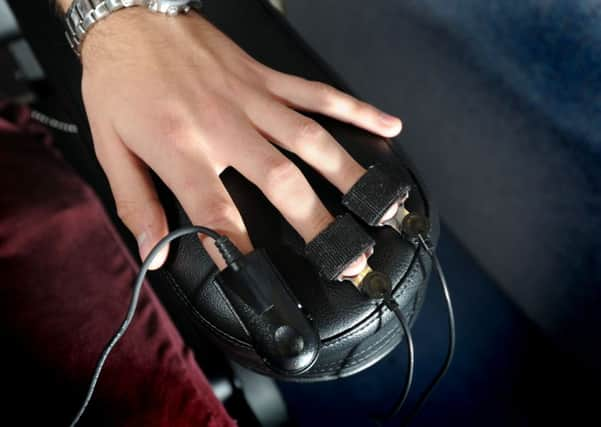How South Yorkshire Police is using lie detector tests to identify sex offenders


Offences have involved viewing indecent images of children along with admissions that one followed a schoolgirl on a bus, while another was babysitting for a neighbour who had no knowledge of his previous convictions.
The South Yorkshire force, which has pioneered the use of so-called lie detector tests by police in the UK, said a “significant number of children and vulnerable people... have been safeguarded and removed from risk of harm and potential sexual abuse” since their introduction in 2014.
Advertisement
Hide AdAdvertisement
Hide AdAround 250 tests have been carried out, the majority on convicted offenders with the remainder on suspects. All the tests are voluntary.
Responding to a Freedom of Information request, the force said in a fifth of cases individuals were found to have given “significant responses” which means they were deemed to have been untruthful.
But the challenge of facing a polygraph has proved equally valuable with offenders opting to volunteer incriminating information during a process which includes a general conversation about behaviour as well as the actual test itself.
In one case an offender admitted he had unauthorised contact with children, had followed a schoolgirl on a bus and said he was looking for an opportunity to reoffend.
Advertisement
Hide AdAdvertisement
Hide AdAs a result he was arrested and subsequently more than a million indecent images of children were found on a series of hard drives.
In another case, an offender admitted he had been viewing indecent images of children at which point the test process was halted and he was arrested. That case is due to go to court.
Detective Constable Richard Chambers, who operates the polygraph testing, said in around a dozen other cases individuals who have previously denied their crimes despite being convicted have finally admitted their offending.
He said in one case, a man who had served an eight-year prison sentence but continued to deny everything, including to his family who had stood by him, broke down during the polygraph and admitted what he’d done.
Advertisement
Hide AdAdvertisement
Hide AdHe said: “He broke down crying. Someone who had been in denial all those years admitted to offences for the first time.
“When that happens it can help with managing an offender, breaking down their boundaries and offering them a second chance of rehabilitation and provides a support network to safeguard from any further offending.”
Seven forces are currently using polygraphs which were first put into practice by police in South Yorkshire and Hertfordshire.
The process, which can take up to five hours, involves an initial informal set of questions then the polygraph itself – which measures physiological responses – followed by a debrief.
Advertisement
Hide AdAdvertisement
Hide AdDet Con Chambers said: “Since their introduction, polygraph assessments have repeatedly shown their value and utility and have provided offender managers with a great deal of information that was previously unknown to them.
“People who have taken part in the assessments have made significant new disclosures regarding such things as unsupervised contact with children, concealed intimate relationships, offending patterns, thoughts and fantasies, offences, assured compliance, risks, acceptance of offending, and behaviour that potentially breached court orders.
“These disclosures have generated referrals to other agencies.”